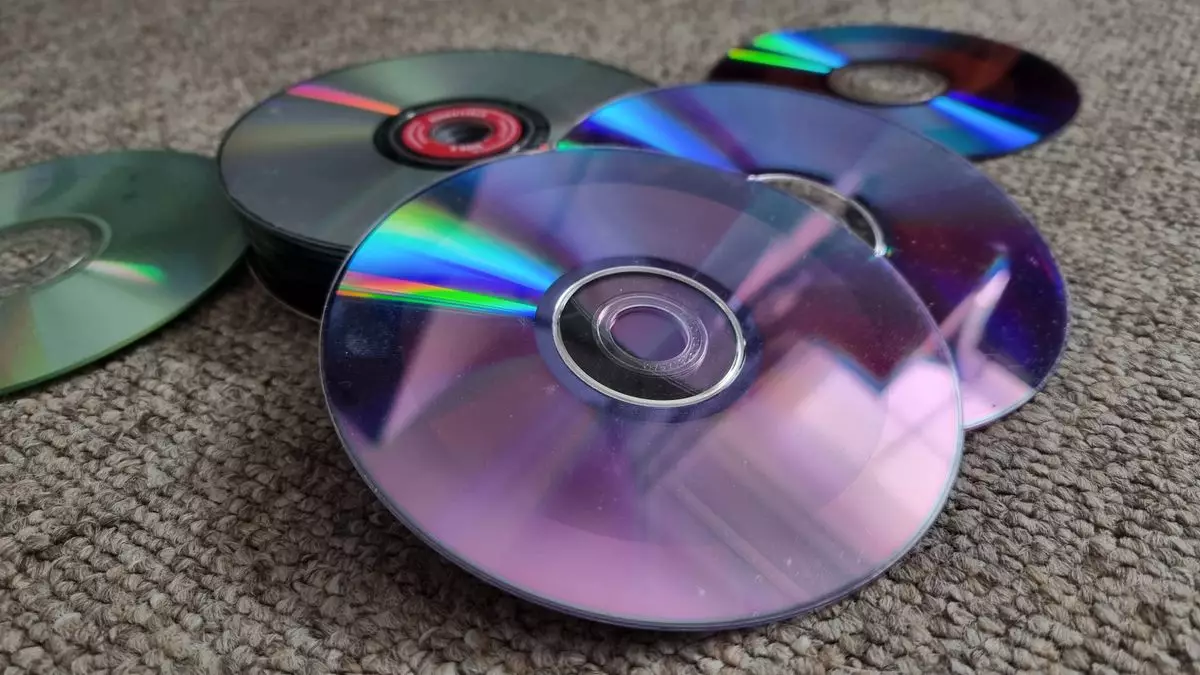For devoted collectors, the treasures contained within their DVD collections are often worth their weight in gold. However, as recent revelations from Warner Bros. have made painfully clear, these cherished relics may hold more nightmares than memories. The studio has publicly acknowledged the unsettling “disc rot” phenomenon affecting select DVD titles produced between 2006 and 2008. The implications are significant; consumers are saddled with deteriorating discs and no guaranteed replacements of the original titles. Such an admission raises alarming questions about the quality and durability we can expect from physical media in an increasingly digital world.
What Is Disc Rot, and Why Should You Care?
Disc rot, sometimes ominously referred to as “laser rot,” encapsulates the troubling tendency of optical discs—CDs, DVDs, and Blu-rays—to degrade over time. This degradation manifests as unsettling oxidation beneath the reflective layer, leading to adhesive failures and a “milky” appearance on the disc surface. Unlike common wear and tear, which can often be remedied through careful cleaning, disc rot has no known cure. For collectors, this is a sobering reality: cherished films, once believed to be permanent landmarks in personal libraries, may instead transform into little more than expensive coasters.
While a typical DVD is expected to last between 30 to 100 years, many of these Warner Bros. titles are now nearing only two decades of age. Understanding these facts prompts an unsettling urgency: if your collection features DVDs from that era, it may be time for a serious inventory check. The implications reach further than mere nostalgia; they touch on the fundamental issue of trust in media production and the very future of physical copies in an age dominated by streaming services.
The Collector’s Dilemma: To Replace or Not to Replace
As the dust settles on Warner Bros.’ announcement, collectors are left grappling with a dilemma: should they hold onto defective discs in hopes of a better outcome, or cut their losses and accept the replacements? This decision is complicated by the reality that some of the original titles may no longer be available, casting a shadow over the reliability of the exchange process. The prospect of receiving a different title, perhaps even a lesser film, adds another layer of frustration for avid fans who pride themselves on specific editions and versions.
While it’s commendable that Warner Bros. has taken steps to address the issue through a replacement program, the reality of not receiving the exact movie originally purchased diminishes the perceived value of this endeavor. An exchange for a similar title, even if it potentially introduces you to hidden cinematic gems, doesn’t replace the emotional attachment many collectors have to their favorite films. This aspect of personal connection underscores a larger issue: physical media not only serves as entertainment but also as a vessel for nostalgia and shared experiences.
Is the End of Physical Media Nigh?
With DVD sales and collections dwindling as streaming services flourish, this situation raises pertinent questions about the future of physical media. Warner Bros.’ limited willingness to replace affected DVDs hints that studios may no longer prioritize the long-term quality of their products, especially as they pivot toward digital distribution. The rise of platforms like Netflix and Disney+ has led to a noticeable dip in DVDs’ popularity; hence, the market may consider it less worthy to invest in maintaining high-quality production lines.
The cultural shift away from physical ownership could render this disc rot phenomenon even more significant, as consumers might increasingly forgo the maintenance of physical collections for the convenience of accessibility through streaming. But what does it say about heritage and nostalgia when technology continuously sweeps the physical treasures of cinematic history under the rug in favor of ephemeral digital formats? Collectors may need to confront this evolving landscape—where what was once proudly displayed might eventually vanish into the ether of cloud storage.
In facing the challenges posed by disc rot and the shifting tides of media consumption, none can deny the implications resonate deeply for collectors and casual viewers alike. We must reconcile our affection for the tangible with a world that increasingly leans toward the intangible, leaving one to ponder: what will be lost as we navigate this brave new era of entertainment?

